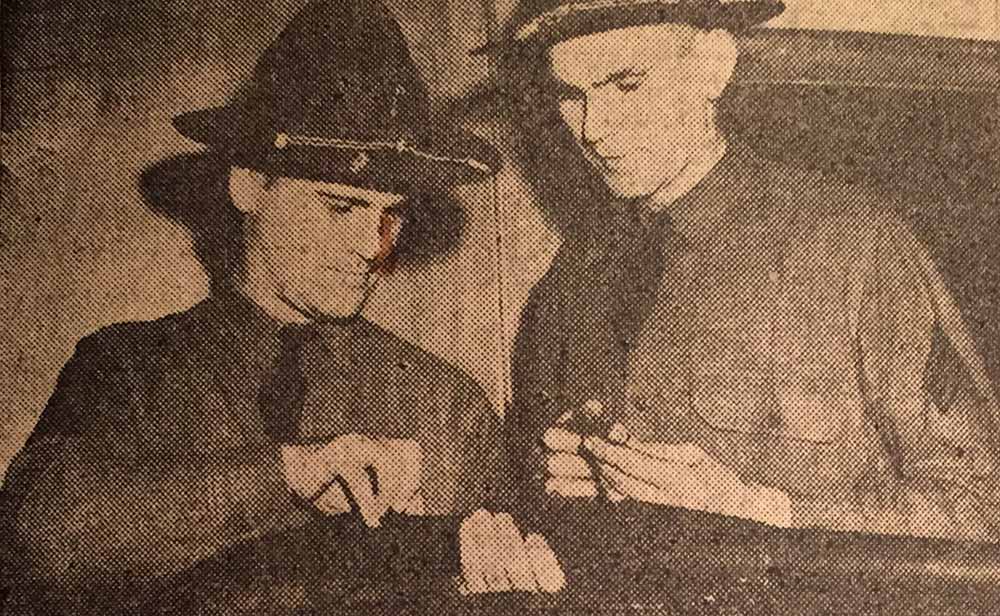
- Historical Date: October 25, 1940
- Location:Muskegon, MI
Over 100 See Service at Camp Beauregard Under New Captain, Feted by Citizens.
Participating in a peacetime mobilization of armed strength unprecedented in the history of the United States, Company G and the attached Headquarters unit of the Michigan National Guard left Muskegon Oct. 15 for Camp Beauregard, La., and a year’s intensive training in the methods of modern war.
More than 100 Greater Muskegon men marched down Western avenue to the accompaniment of military music and the sonorous explosion of aerial bombs. They entrained at the Pere Marquette station where a hushed crowd estimated at 20,000 watched the guardsmen leave.
Complete with rolling kitchen and their own baggage cars, the train went through to Camp Beauregard, picking up the guardsmen of Grand Haven, Holland and other west Michigan communities as it headed south with other units of the 126th Infantry, one of the regiments of the 32nd Division.
Company G was no longer under command of Capt. Lawrence G. Covell, disqualified from active service as the result of an old wound, received in the World war, but was led by Capt. Herald Hootman. Headquarters unit was under the command of Lieut. Jack Harper.
Public banquets honored the guardsmen before they left and a colorful ceremony was held under the lights at Hackley stadium when officers and men took the formal oath and were inducted into the service of the United States.
Company G carries on the military tradition of Greater Muskegon in the southern training ground. Beginning with the Civil war when 700 men of Muskegon formed the First Michigan Volunteer Infantry which served with distinction through the bloodiest campaigns of that war, Greater Muskegon men have taken part in every campaign of the United States.
In the Spanish American war, and on the Mexican border, men of Muskegon again saw active service.
In the World war, 17 members of Company G were killed in action. Ten gained commissions and many received decorations, both from the United States and from foreign governments, for bravery and valor on the field of battle.1
- Newspaper clipping. Unknown newspaper, probably Muskegon Chronicle.

0 comments